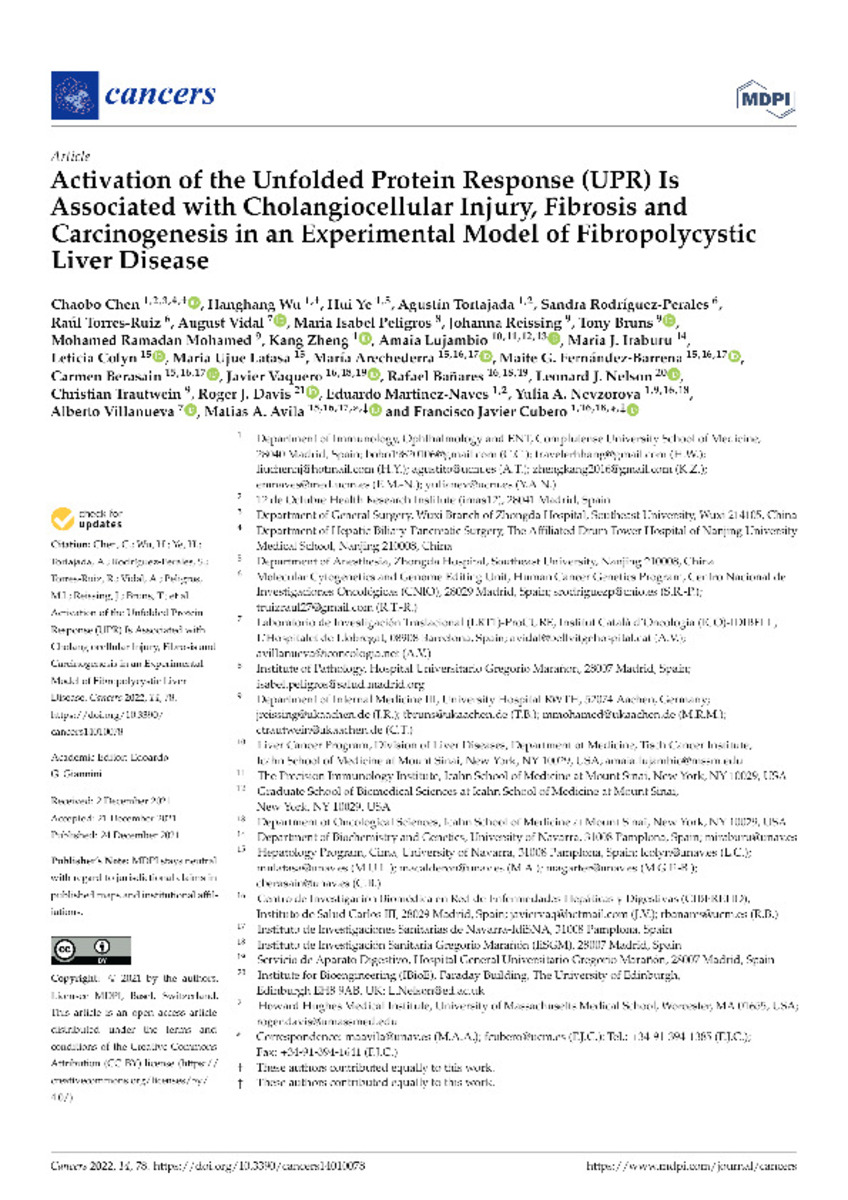Activation of the unfolded protein response (UPR) is associated with cholangiocellular injury, fibrosis and carcinogenesis in an experimental model of fibropolycystic liver disease
Palabras clave :
c-Jun N-terminal kinases (JNK)
Fibropolycystic liver disease
Cholangiocarcinoma (CCA)
Endoplasmic reticulum (ER)
Stressthioacetamide (TAA)
CM272
Fecha de publicación :
2022
Nota:
This article is an open access article distributed under the terms and conditions of the Creative Commons Attribution (CC BY) license (https://creativecommons.org/licenses/by/4.0/).
Cita:
Chen, C. B.; Wu, H. H.; Ye, H.; et al. "Activation of the unfolded protein response (UPR) is associated with cholangiocellular injury, fibrosis and carcinogenesis in an experimental model of fibropolycystic liver disease". Cancers. 14 (1), 2022, 78
Aparece en las colecciones:
Estadísticas e impacto
0 citas en

Los ítems de Dadun están protegidos por copyright, con todos los derechos reservados, a menos que se indique lo contrario.











